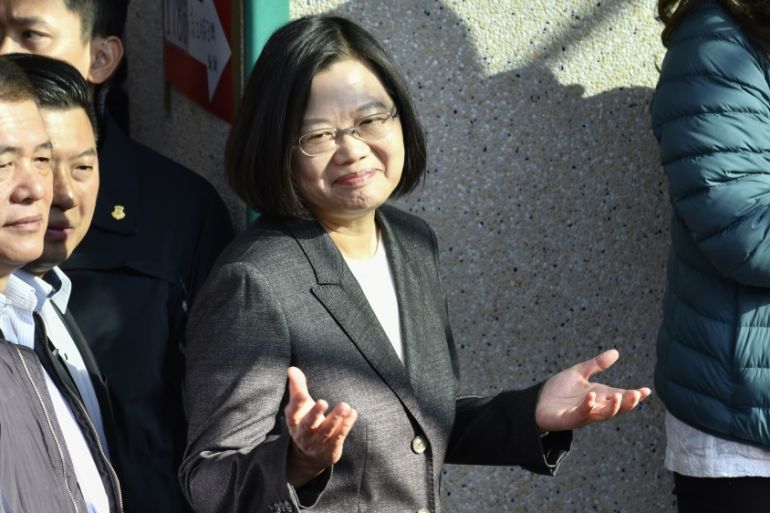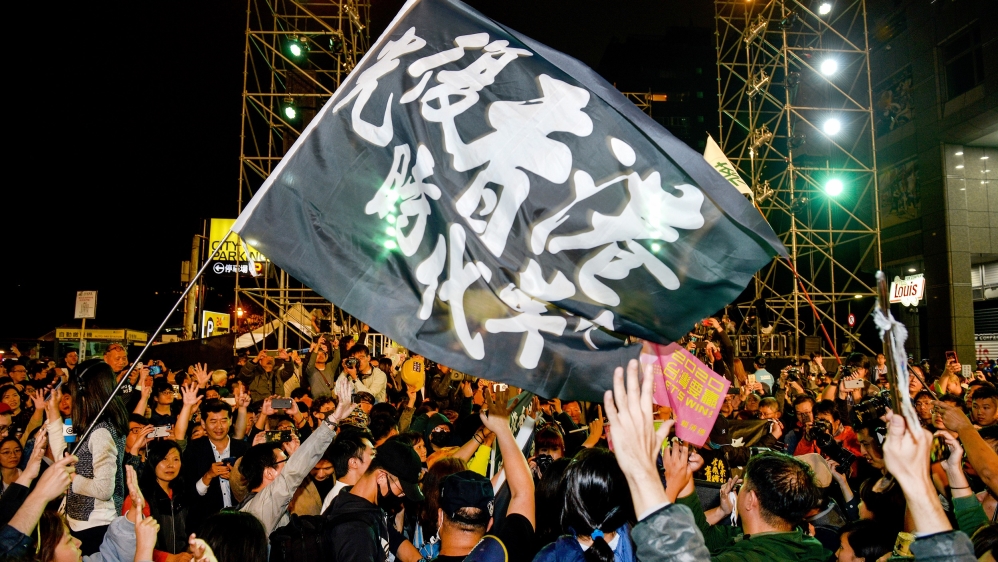Taiwan’s Tsai urges China to review policy after election win
Newly re-elected president says she hopes Beijing can understand the will expressed by votes in Saturday’s election.

Taiwan President Tsai Ing-wen urged China on Wednesday to review its policies towards the island, days after she won a landslide re-election victory, in a rebuke that could increase further tensions with China.
“We hope China can understand the opinion and will expressed by Taiwanese people in this election and review their current policies,” Tsai told reporters in Taipei. She did not elaborate.
Keep reading
list of 3 itemsIncumbent Tsai wins Taiwan’s presidential election
Hong Kong movement drives Taiwan pro-independence support
China considers democratic Taiwan its own territory and has tried military threats and economic inducements to get the island to accept its rule.
Taiwan says it is an independent country, called the Republic of China, its official name.
On Wednesday a spokesman for the Chinese cabinet’s Taiwan Affairs Office, said Beijing would not change its policy to take control of Taiwan through its “one country, two systems” framework, despite the heavy turnout in favour of pro-independence candidates.
Ma Xiaoguang said China would continue to insist on the so-called “92 Consensus” that acknowledges the self-governing island and the mainland as part of a single Chinese nation.
|
|
“We do not insert ourselves into or critique Taiwan’s elections. This round of Taiwan’s local elections cannot change the status of Taiwan as a part of China,” Ma said.
Tsai, who has drawn the ire of Beijing for refusing to acknowledge that Taiwan is part of “one China”, secured a record-breaking win in Saturday’s vote.
Beijing has blamed what it called “fake news” as well as Western interference for Tsai’s victory.
Beijing’s tactics backfire
On Monday, Chinese Foreign Minister Wang Yi dismissed her victory and warned supporters of Taiwan independence, saying “splitting the country is doomed to leave a name that will stink for eternity.”
The “one-China principle” is a “universal consensus” held by the international community, he said, and one that will “not be affected in the slightest by a local election in Taiwan.”

Beijing, which has promised to one day take Taiwan by force if necessary, dislikes Tsai, who has pitched herself as a defender of liberal democratic values against an increasingly authoritarian China.
Over the past four years, the Chinese government has ramped up economic, military and diplomatic pressure on the island.
But the strong-arm tactics pushed voters to back Tsai’s Democratic Progressive Party, fuelled in part by China’s hardline response to months of huge and sometimes violent pro-democracy protests in Hong Kong.
After Tsai’s victory, China doubled down on its “one-China principle”, with foreign ministry spokesman Geng Shuang emphasising: “There is only one China in the world and Taiwan is part of China.”